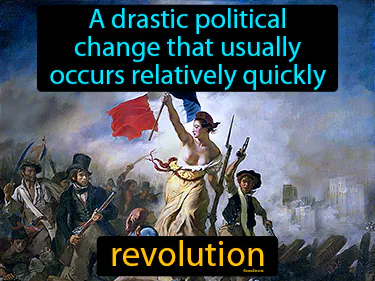Revolution and Expansion
History
absolute monarch
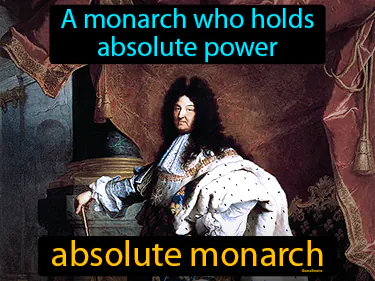
A monarch who holds absolute power. Absolute monarch. An absolute monarch is a ruler who has complete control over the government and is not limited by laws or a constitution.
Agustin de Iturbide
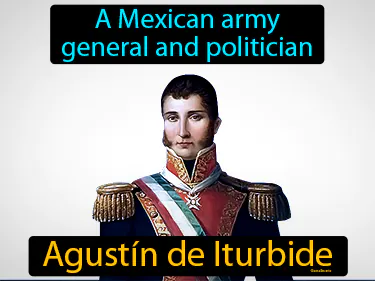
A Mexican army general and politician. Agustin de Iturbide. He was the first Emperor of Mexico after leading the country to independence from Spain.
aristocracy
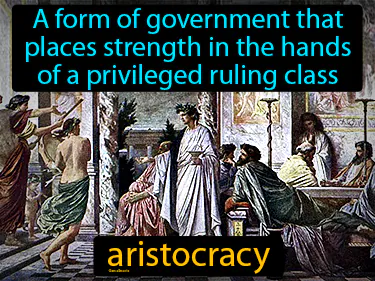
A form of government that places strength in the hands of a privileged ruling class. Aristocracy. In history, aristocracy is a system where power is held by a small, elite group of noble families or individuals.
Bastille
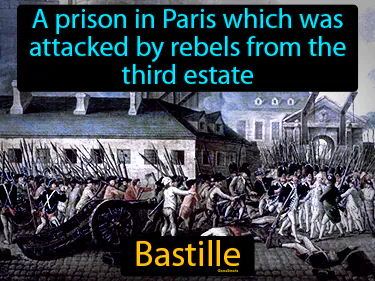
A prison in Paris which was attacked by rebels from the Third Estate. Bastille. The Bastille was a fortress prison that symbolized royal tyranny in France, and its storming in 1789 marked the start of the French Revolution.
Boxer
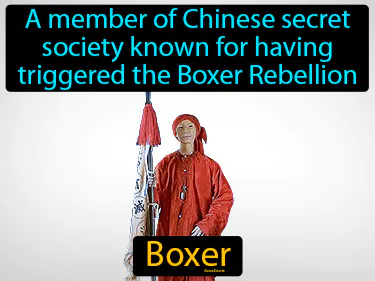
A member of Chinese secret society known for having triggered the Boxer Rebellion. Boxer. The Boxers were a Chinese secret society that led a violent uprising against foreign influence and Christianity in China around 1900.
Cyrus McCormick
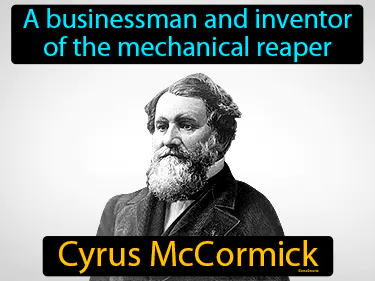
A businessman and inventor of the mechanical reaper, Cyrus McCormick. He revolutionized agriculture in the 19th century by inventing a machine that made harvesting crops more efficient.
Declaration of the Rights of Man
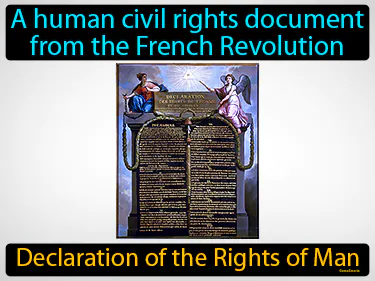
A human civil rights document from the French Revolution. Declaration of the Rights of Man. It is a fundamental document that outlined the individual rights and freedoms of all men during the French Revolution.
decree
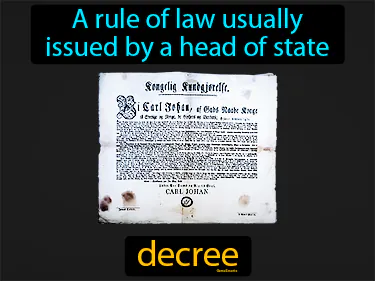
A rule of law usually issued by a head of state. Decree. In history, a decree is an official order or decision made by a leader or government that must be followed.
Diet

A formal deliberative assembly. Diet. In history, a Diet was an official meeting or assembly where leaders, especially in Europe, gathered to discuss and make decisions on political matters.
estate
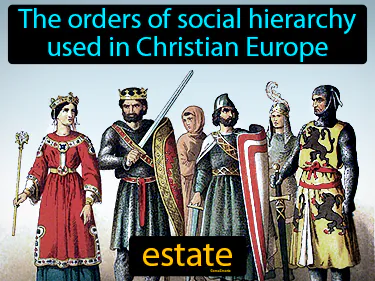
The orders of social hierarchy used in Christian Europe estate. An estate refers to a social class or order, specifically the division of society into clergy, nobility, and commoners during the Middle Ages and early modern period.
factory
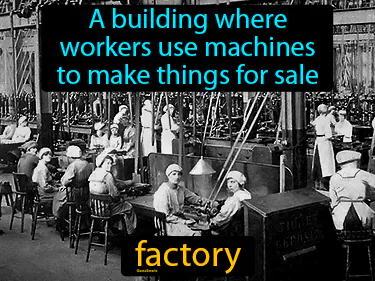
A building where workers use machines to make things for sale. Factory. During the Industrial Revolution, factories transformed production by centralizing work and using machinery to mass-produce goods.
Father Jose Morelos
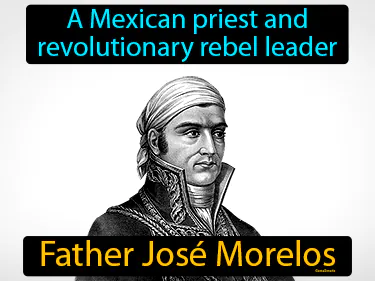
A Mexican priest and revolutionary rebel leader, Father Jose Morelos. He was a key figure in Mexico's fight for independence from Spanish rule.
Father Miguel Hidalgo
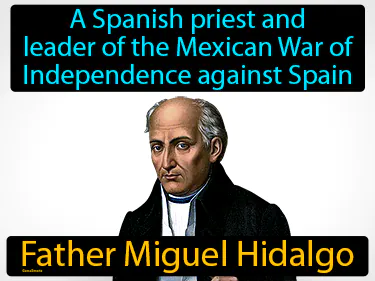
A Spanish priest and leader of the Mexican War of Independence against Spain. Father Miguel Hidalgo was the man who began Mexico's fight for independence from Spanish rule in 1810.
imperialism
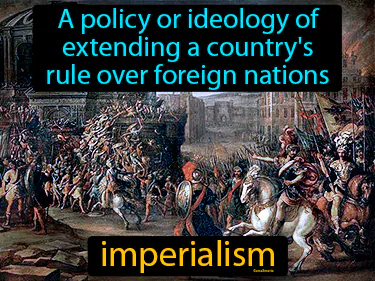
A policy or ideology of extending a country's rule over foreign nations. Imperialism is when a country expands its power and influence by taking control of other lands and peoples.
Industrial Revolution
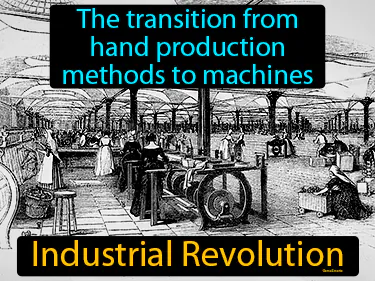
The transition from hand production methods to machines. Industrial Revolution. The Industrial Revolution was a period when society shifted from manual labor and agriculture-based economies to industrial and machine-driven production.
James Watt
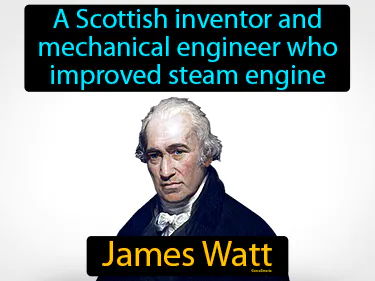
A Scottish inventor and mechanical engineer who improved the steam engine James Watt. He is a key figure in the Industrial Revolution for making steam engines more efficient.
Jigoro Kano
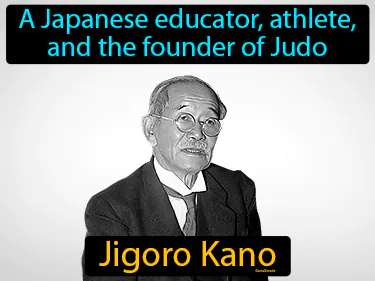
A Japanese educator, athlete, and the founder of Judo. Jigoro Kano. He revolutionized martial arts by creating Judo, a modern sport and educational discipline.
John Deere
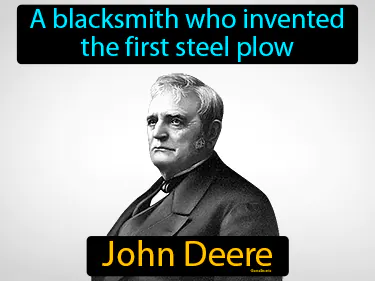
A blacksmith who invented the first steel plow, John Deere. John Deere revolutionized farming by creating durable, efficient tools.
Jose de San Martin
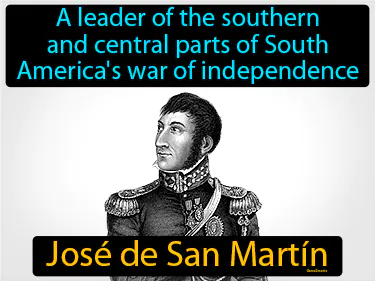
A leader of the southern and central parts of South America's war of independence. Jose de San Martin. He was a key military leader who helped South American countries gain independence from Spanish rule.
Karl Marx
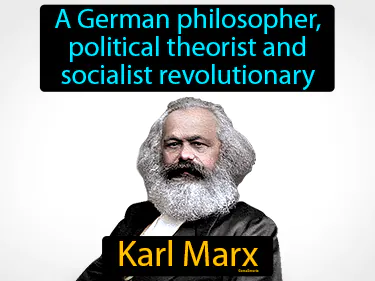
A German philosopher, political theorist and socialist revolutionary. Karl Marx is a key figure in history known for developing the ideas of communism and critiquing capitalism.
labor union
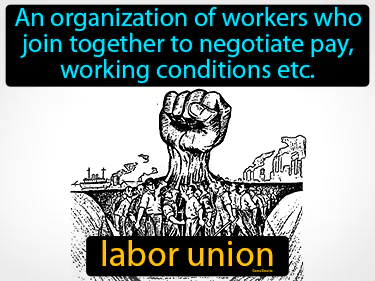
An organization of workers who join together to negotiate pay, working conditions, etc. is called a labor union. Labor unions are groups formed by workers to gain better rights and conditions through collective bargaining.
Latin America
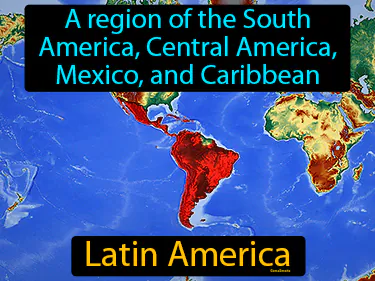
A region of the South America, Central America, Mexico, and Caribbean. Latin America. Latin America is a group of countries in the Americas where Romance languages, like Spanish and Portuguese, are primarily spoken, shaped by a history of colonization.
Louis XVI
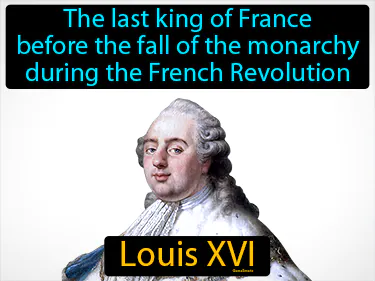
The last king of France before the fall of the monarchy during the French Revolution. Louis XVI. Louis XVI was the French king who was overthrown and executed during the French Revolution.
Marie Antoinette
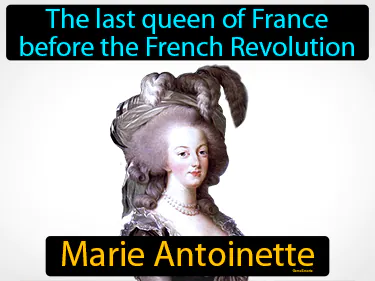
The last queen of France before the French Revolution was Marie Antoinette. She was the queen famous for her extravagant lifestyle and was executed during the Revolution.
Matthew Perry
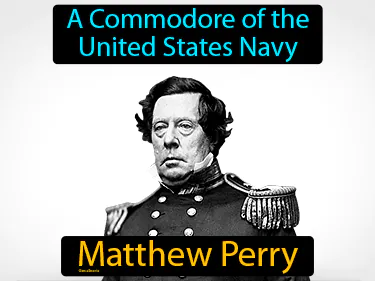
A Commodore of the United States Navy, Matthew Perry. He is known for opening Japan to the West in the mid-19th century.
Meiji
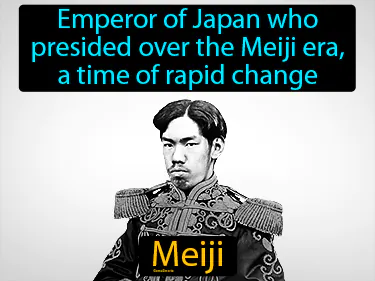
Emperor of Japan who presided over the Meiji era, a time of rapid change. Meiji. The Meiji era was a period in Japanese history when the country modernized and became more industrialized.
Meiji Restoration
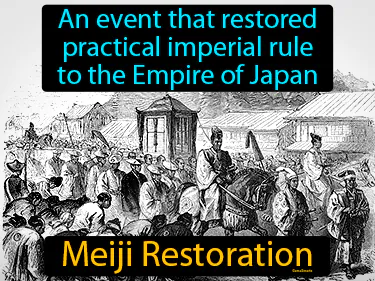
An event that restored practical imperial rule to the Empire of Japan Meiji Restoration. The Meiji Restoration was a period in Japanese history when the emperor regained power from the shogun, leading to major political, social, and economic changes.
middle class
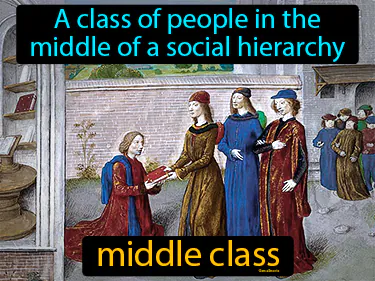
A class of people in the middle of a social hierarchy. Middle class. Historically, the middle class consists of people like merchants and professionals who have moderate wealth and influence, emerging prominently during the Industrial Revolution.
Napoleon
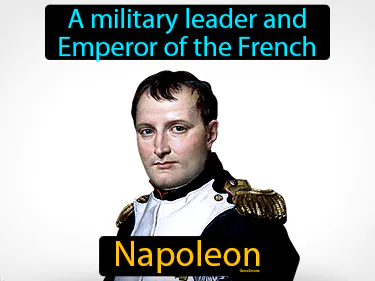
A military leader and Emperor of the French. Napoleon. He was a French general who rose to power and became Emperor, greatly influencing European history in the early 19th century.
Napoleonic Code
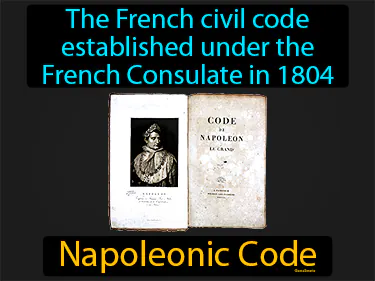
The French civil code established under the French Consulate in 1804. Napoleonic Code. It is a set of laws that influenced legal systems worldwide by standardizing civil law and emphasizing individual rights.
nationalism
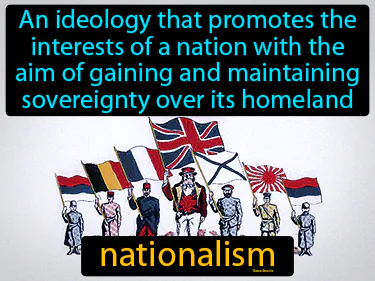
An ideology that promotes the interests of a nation with the aim of gaining and maintaining sovereignty over its homeland. Nationalism. In history, nationalism is the belief in and support for the interests and culture of one's nation, often leading to the desire for independence or increased political power.
peasant
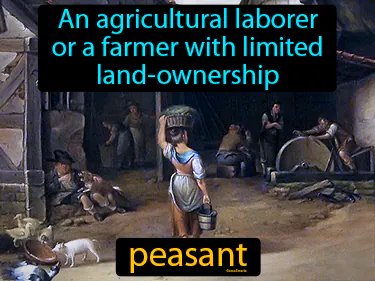
An agricultural laborer or a farmer with limited land-ownership is called a peasant. In history, peasants were often the backbone of rural economies, working the land to produce food and goods.
Robert Fulton
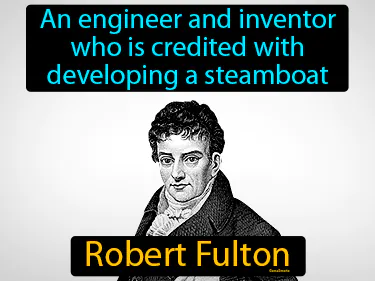
An engineer and inventor who is credited with developing a steamboat, Robert Fulton. He was a pioneering figure in making steamboats commercially successful in the early 19th century.
Robespierre
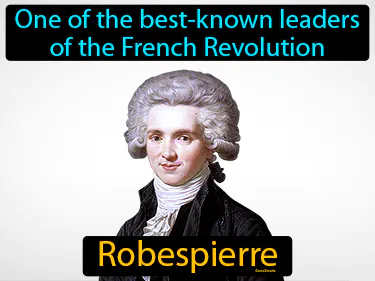
One of the best-known leaders of the French Revolution. Robespierre. He was a key figure who played a significant role in the Reign of Terror.
sepoy
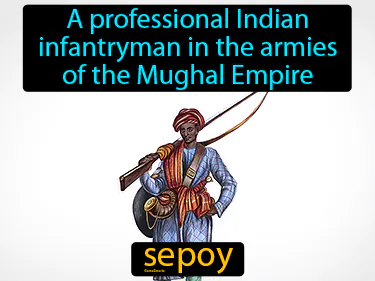
a professional Indian infantryman in the armies of the Mughal Empire. sepoy. A sepoy was an Indian soldier serving under British or other European orders during colonial rule.
Simon Bolivar
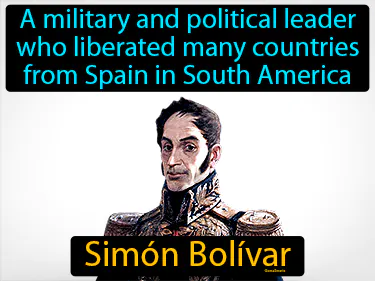
A military and political leader who liberated many countries from Spain in South America Simon Bolivar. Simon Bolivar was a key figure in South American independence from Spanish rule.
socialism
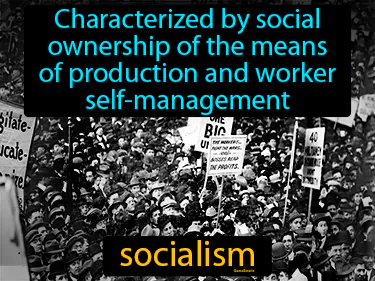
Characterized by social ownership of the means of production and worker self-management. Socialism. In history, socialism is a system where the government or community as a whole owns and controls production and resources, aiming for equal wealth distribution.
sphere of influence
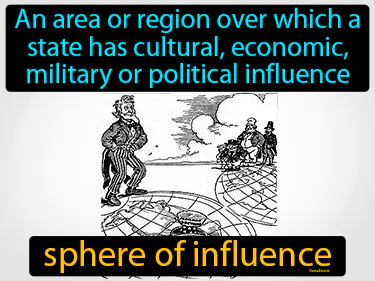
An area or region over which a state has cultural, economic, military or political influence. Sphere of influence. In history, a sphere of influence is a region where a powerful country affects developments or controls outcomes without having direct authority over the area.
strike
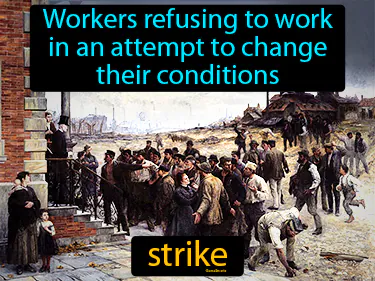
Workers refusing to work in an attempt to change their conditions. Strike. A strike is when workers stop working to demand better pay or conditions.
textile

A manufactured material that is made by weaving or knitting fibres together. Textile. In history, textiles played a crucial role in trade and economy, shaping civilizations through the exchange of fabric goods.
Toussaint L Ouverture
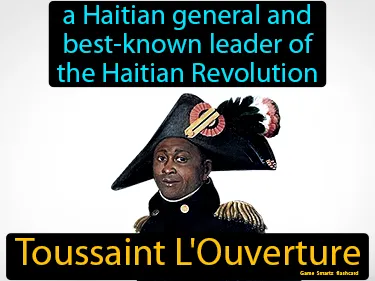
A Haitian general and best-known leader of the Haitian Revolution, Toussaint L'Ouverture. He was a former slave who led the fight for Haiti's independence from French colonial rule.
working class
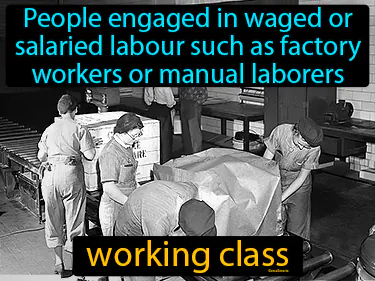
People engaged in waged or salaried labour such as factory workers or manual laborers. working class. The working class is a group of people in society who perform jobs in exchange for wages, historically seen during the Industrial Revolution when factories needed many workers.
